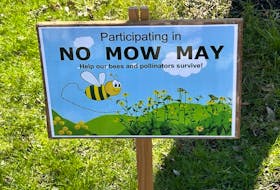People generally take a dim view of any attempt to keep literature away from readers. In the incident involving a book about the history of Pictou County’s Northern Pulp, granted, there are conflicting viewpoints involving jobs, the effect on the economy and the impact on the environment. It’s a difficult, divisive subject. But an effort to waylay a book signing for the “The Mill: Fifty Years of Pulp and Protest” at a local store will inevitably be seen in a bad light.
Pictou West MLA Karla MacFarlane, in commenting on this turn of events Wednesday, made an interesting point. She expects opposition to the book as expressed by mill officials and their effort to shut down the signing will backfire and help the book sell out.
MacFarlane said the move infringed on freedom of speech, as pressure from the Abercrombie mill resulted in the national office for Indigo books in Toronto cancelling the book signing with author Joan Baxter at the Coles store in Highland Square Mall.
The level of pressure applied is up for debate perhaps. Kathy Cloutier, communications manager for parent company Paper Excellence Group, said the mill's management wrote a letter objecting to the book signing. The letter encouraged its workers, retirees and their families to sign and submit the letter to the bookstore “of their own free accord” to express their objections.
But a spokesperson for the book chain said safety of staff was a priority.
Disagreeing with the contents of a book is one thing. But this pressure on a local store appears to have been what it took to cancel the event.
Northern Pulp officials maintain they, their employees and others who have been associated with the mill find the book offensive and demeaning – also one-sided as it criticizes provincial governments over the years as having failed to uphold environmental standards.
The author, however, claims that the company’s management and board declined participating in the process when she was writing the book, nor would the workers and nor would Premier Stephen McNeil when asked for an interview.
Even so, countering the facts as they appear in the book is fair game. But taking steps that appear to be aimed at keeping the book out of people’s hands is something different altogether. Artists, activists, societies in general had to fight in decades and centuries past to see that literature and the expression of varying points of view were not censored.
The current topic regarding Northern Pulp’s proposed effluent treatment is obviously a sensitive and divisive one. Discussion about it comes just at the time of this book’s release.
Getting accurate information to the public is essential but certainly also a complex task – in this instance as in many cases that involve industry, the environment and the corresponding science. But appearing to suppress information will never be well perceived.








